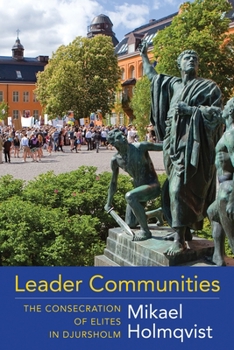Leader Communities: The Consecration of Elites in Djursholm
Select Format
Select Condition 
Book Overview
All around the world there are elite suburban communities: Palo Alto, California, and Greenwich, Connecticut, in the U.S.; Paris's Neuilly; and Oxshott outside London. These wealthy suburbs are home to the economic and social elites who work in the world's global cities. Stockholm's suburb Djursholm is one such place. It is full of large houses, winding lanes, and is surrounded by a beautiful landscape. Its residents prize physical fitness, healthy eating, fine art, and education. Despite Sweden's reputation for egalitarianism, Djursholm is representative of global mechanisms of privilege and its perpetuation.
Leader Communities is the sociologist Mikael Holmqvist's term for places like Djursholm: the communities where elites choose to live, socialize with other elites, and, most importantly, form families and raise their children into future elites. Such neighborhoods consecrate inhabitants into leaders--that is, they offer their residents a social environment that imbues people with a sense of social and moral elevation. By idealizing their residents, leader communities' allegedly superior lifestyle and character act as a principle of distinction and legitimation. Holmqvist calls this a consecracy--a society that leads by means of its aura, brightness, and radiance, allowing the privileged to pose as a moral vanguard. Leaders are made--not born--by the culture, history, traditions, ceremonies, rituals, and institutions of the place. Based on a comprehensive five-year ethnographic study, this book is a community study of Djursholm in which the author ventures inside the world of the elite to explore the mechanics of social interaction and power. Leader Communities introduces vital new concepts to the study and understanding of contemporary elites and offers a troubling analysis of the moral, social, and political consequences of their aspirations to lead societies.





